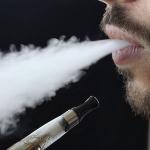The “opioid epidemic” consistently addressed in the news, by politicians and throughout social media conflates many aspects of the issue, often speaking interchangeably about prescription medications and illicit drugs.
harm reduction
It’s been a while since I wrote about foreign bodies in the body; but, given a recent published case report describes a 20-cm eggplant transanally positioned and stuc
Not that long ago, if a company had invented a far safer way to deliver nicotine to addicted smokers, politicians would be celebrating. Smoking is one of the leading preventable causes of disease and death in the world.
There is a stunning lack of practicality in modern-day America.
There's no doubt about it. E-cigarettes have the potential to save millions of lives.
Philadelphia, the city with one of the highest incidences of drug overdoses, announced yesterday support for “comprehensive user engagement sites”– a facility where drug-addicted individuals can use their drugs under the nominal supervision of nur
Scientific Reports published a paper on reducing medical radiation dosages, CT dose reduction factors in the thousands using X-ray phase contrast by Marcus Kitchen et. al.
As a physician, I can unequivocally say that about 70 percent of the illnesses I have encountered has been either directly or indirectly related to cigarette smoking.
E-cigarettes are "effective in helping people quit smoking" and "95% safer than smoking."* Additionally, there are "no health risks to bystanders."
The King County Health Department, which serves mostly the city of Seattle and its suburbs, has recently earned a reputation for being driven by politics rather than by evidence-based medicine or common sense.












